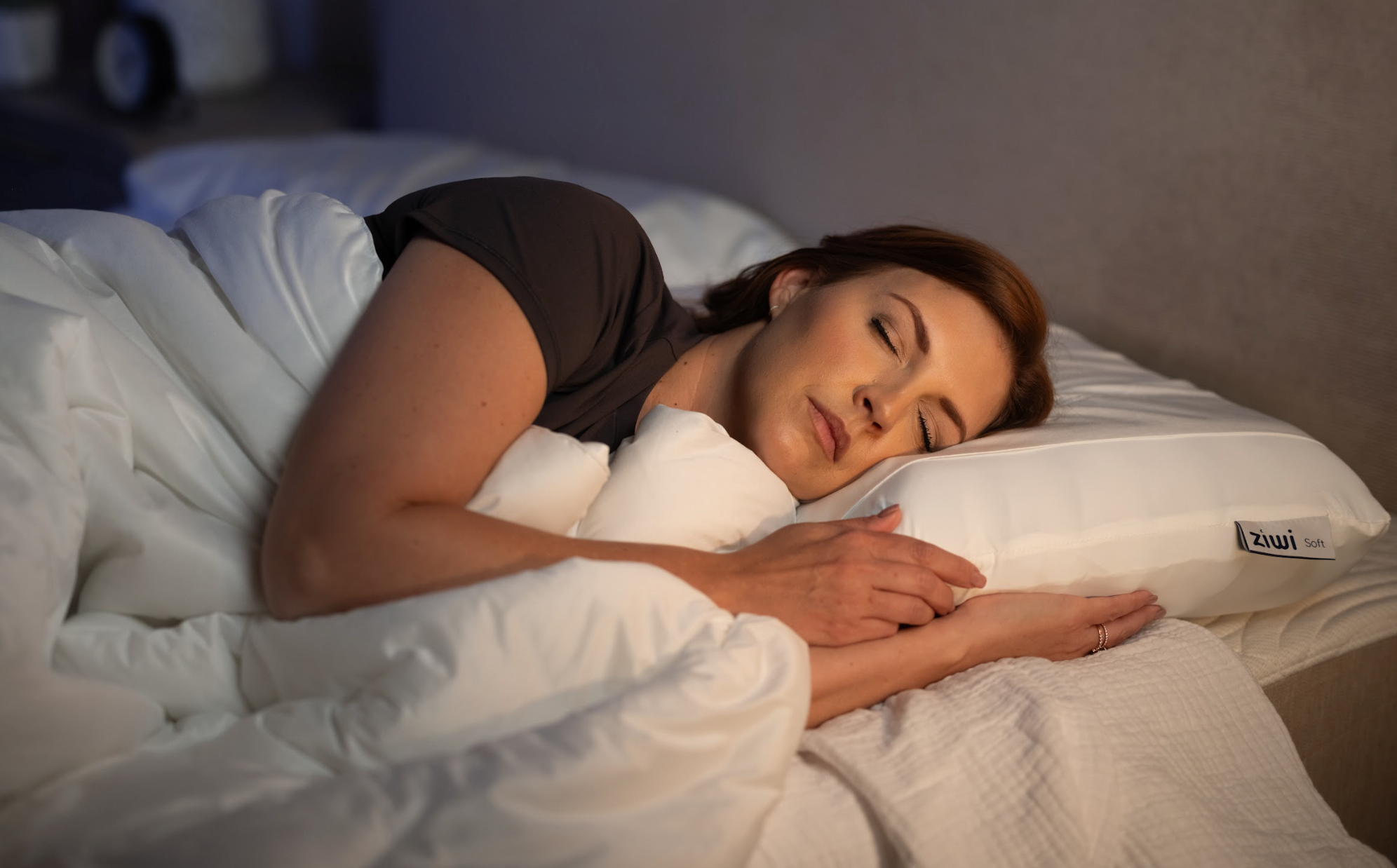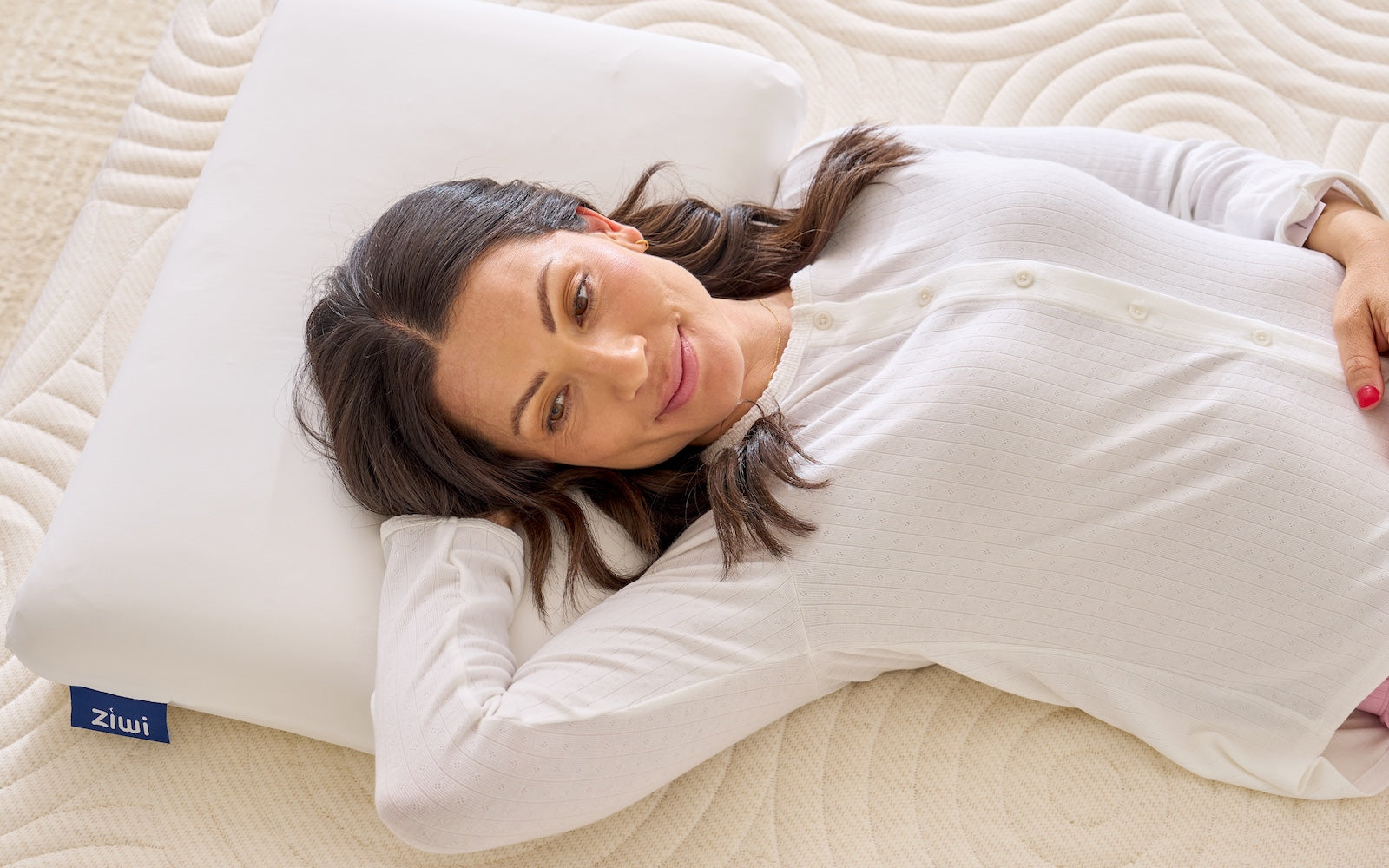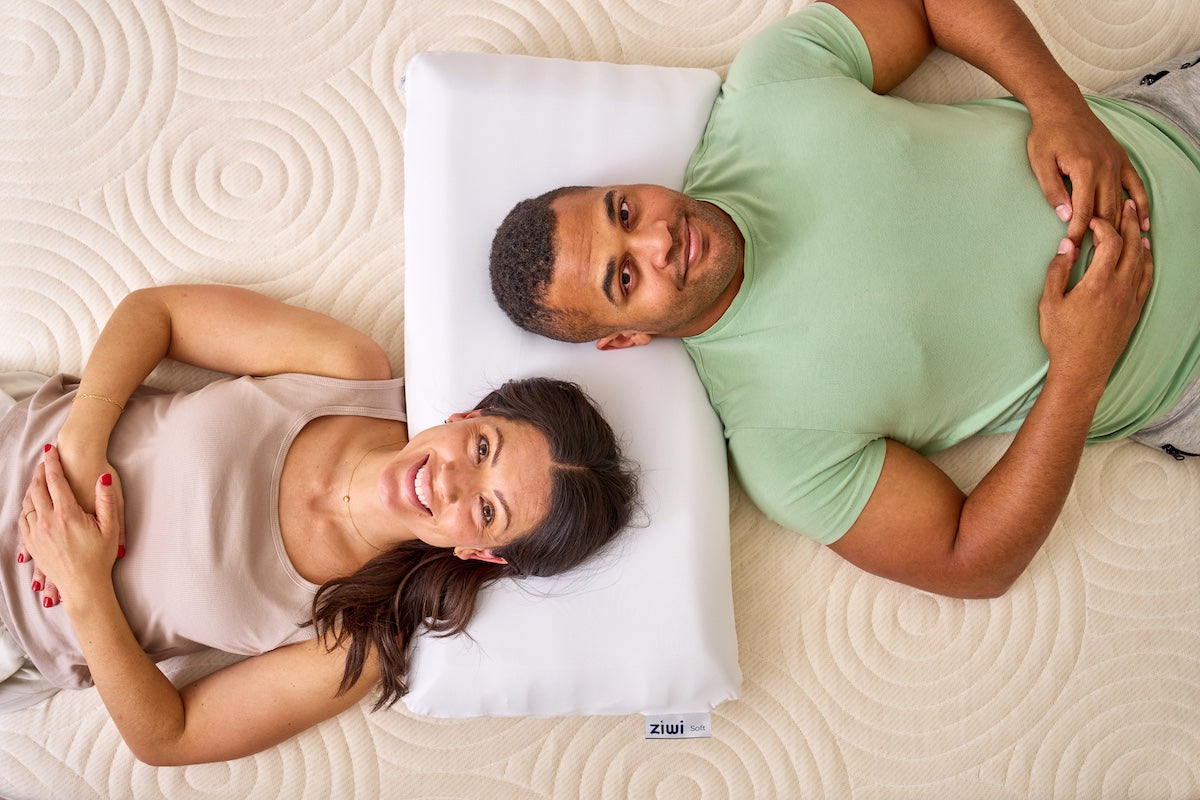In the pursuit of better sleep, many people have turned to sleep trackers—devices designed to help us understand our sleep patterns and improve our rest. But as helpful as these gadgets seem, they can sometimes create more problems than they solve. If you’ve ever felt anxious about your sleep score or found yourself obsessing over data points, you’re not alone. Let’s talk about how sleep trackers might be interfering with your natural rhythms and what you can do to keep your sleep (and your sanity) in check.
The Rise in Popularity of Sleep Trackers and Wearables
From smartwatches to rings, phone apps and technology built into beds, sleep trackers are everywhere. These trackers are devices or apps designed to monitor and analyze sleep patterns. They use various sensors—such as accelerometers, heart rate monitors, and even temperature sensors—to detect movement, breathing, and other physiological signals throughout the night. The data from these trackers is usually shown in easy-to-read graphs, numbers or reports on a mobile app or website, displaying things like how long you slept, sleep quality, and any disruptions during the night.
The promise is enticing: more data means better sleep, right? Not always. While sleep trackers can offer insights into general patterns, they aren’t always as precise as they seem.
How accurate are sleep trackers? It’s a question I hear often, and the truth is these devices aren’t measuring your sleep directly. Most sleep trackers work by using motion sensors and heart rate data to estimate when you're asleep and what stage of sleep you’re in. The results can be helpful for spotting trends, but they often miss key details, like brief awakenings or the true depth of your sleep stages.
The Psychological Effects of Constantly Tracking Sleep Data
Here’s where things get tricky. Tracking your sleep can sometimes make you more anxious about it. This anxiety has a name—orthosomnia—and it’s becoming increasingly common.
What Is Orthosomnia?
Ever find yourself lying in bed, staring at the ceiling, wondering if your sleep tracker is going to give you a good score in the morning? You’re not alone. There’s actually a name for this growing issue—orthosomnia.
Researchers first identified orthosomnia in 2017 when they noticed a pattern: people were becoming so obsessed with their sleep tracker data that it was actually making their sleep worse. Instead of resting naturally, they were stressing over numbers, trying to "fix" their sleep based on what their devices reported rather than how they actually felt. Since then, we’ve been studying this phenomenon further, observing how this obsession with data can create anxiety, making it harder for people to get the restful sleep they need.
The problem is that sleep trackers aren't perfect. They provide estimates, not exact science, but when people take their sleep scores too seriously, they may start adjusting their habits unnecessarily—going to bed earlier than they need to, waking up worried if their score is low, or even feeling exhausted just because their tracker said they had a bad night. Instead of helping, the tracker becomes a source of stress, creating a vicious cycle where the pressure to sleep well actually leads to worse sleep.
If you’ve ever woken up feeling fine, only to see a bad sleep score and suddenly feel more tired, you might be experiencing a little orthosomnia yourself.
When Sleep Tracking Becomes a Numbers Obsession
For many people, sleep tracking starts as a tool for self-improvement but can quickly spiral into an unhealthy fixation. It’s not just about sleep anymore—it becomes a scoreboard. Some people compare their sleep scores to their past results, while others even share them in social groups or challenge themselves to “beat” their previous numbers.
Consider the case of a woman I used to work with—let's call her Lisa. She’s a 43-year-old mom of two who turned to a sleep tracker, hoping it would help her feel more rested. Here’s how her experience unfolded. At first, it was helpful—she noticed her sleep was better on nights when she avoided late-night scrolling. But then, things took a turn. She started waking up and checking her sleep score before checking in with how she actually felt. If her tracker gave her a low score, she’d feel exhausted—even if she wouldn’t have noticed otherwise. Worse, she found herself comparing numbers with her husband and friends, feeling frustrated when their scores were “better.” Suddenly, sleep wasn’t about feeling rested—it was about winning.
This kind of sleep-related performance anxiety fuels orthosomnia. Instead of listening to their bodies, people trust the tracker’s verdict, even when it contradicts their lived experience. Sleep becomes another area of life where they feel the pressure to achieve perfection, leading to more stress, worse sleep, and an unhealthy relationship with rest.
Is Sleep Tracking Worth It?
The more we chase sleep “perfection,” the harder it can be to achieve. Imagine lying in bed, worrying about whether your tracker will record enough deep sleep tonight. This kind of pressure can actually make it harder for your body to relax and drift off.
Instead of trusting how your body feels in the morning, you find yourself glued to your app, second-guessing your own experience. Over time, this hyper-focus can create a vicious cycle of stress, poor sleep, and frustration…and worst part is that it may not be accurate! A good tool to aide your sleep has become an enemy.
Tips for Using Sleep Trackers in a Healthy Way
If you love your sleep tracker, don’t panic—you don’t have to ditch it altogether. The key is using it mindfully so that it remains a helpful tool rather than a source of stress. Here are a few ways to strike a healthy balance:
1. Track Trends, Not Nightly Scores
It’s easy to fixate on one bad night and assume your sleep is ruined, but sleep is about long-term patterns, not single data points. Instead of stressing over last night’s sleep score, look at how your sleep trends over weeks or months. Are you consistently waking up groggy? Do you sleep better when you avoid screens before bed? Tracking these bigger patterns tied to your sleep routines and environment can actually help you make meaningful adjustments, whereas obsessing over nightly fluctuations just adds unnecessary stress. Your body is resilient—one rough night won’t make or break your overall sleep health.
2. Prioritize How You Feel Over Data
Your sleep tracker might claim you had a “poor” night, but what really matters is how you feel. If you wake up feeling refreshed and ready to take on the day, does it really matter if your sleep score isn’t perfect? Too often, people let their tracker dictate their energy levels, convincing themselves they’re tired just because the numbers say so. Instead, make it a habit to check in with yourself before checking your data. Ask yourself: Do I feel rested? Was my energy steady throughout the day? Your body’s signals are far more reliable than an algorithm.
3. Don’t Obsess Over Deep Sleep
Many sleep trackers emphasize deep sleep, leading people to believe they need more of it than they actually do. While deep sleep is important, there’s no magic number you need to hit every night. Your sleep cycles naturally vary, and focusing too much on one specific stage can create unnecessary anxiety. Instead of trying to "hack" your way into more deep sleep, focus on building consistent sleep and daytime habits—engaging your senses throughout the day, creating a sleep-friendly environment, winding down properly, keeping a steady sleep schedule, and managing your stressors during the day. These habits will naturally improve sleep quality without the need to micromanage your deep sleep percentage.
4. Set Data-Free Nights
If you find yourself getting too caught up in the numbers, try giving yourself a break from tracking. Designate at least one night a week where you sleep without your tracker. Not only does this reduce the mental pressure around sleep, but it also allows you to reconnect with your own internal cues. You might notice that you sleep just as well—or even better—when you’re not constantly analyzing the data. Think of it as a reset, helping you shift the focus back to what truly matters: how you feel, not just what the numbers say.
By using your sleep tracker with a balanced approach, you can gain useful insights without falling into the trap of overanalyzing. Sleep is meant to feel restorative, not like another thing to track and perfect.
Alternatives to Sleep Trackers
If you find yourself caught in a spiral of sleep anxiety, there are other ways to improve your rest without relying on constant data:
• Focus on your days: Sleep isn’t just about what happens when your head hits the pillow—it’s built by everything you do during the day. Instead of stressing over sleep trackers, focus on your daily habits to improve your rest. Sleep is a daytime issue™, and the more you engage your senses throughout the day, the better prepared your body will be for sleep. Light exposure is crucial, but other sensory inputs like touch, sound, taste, and smell also play a significant role. Activities like getting sunlight, feeling the breeze outside, listening to different sounds, and engaging in social interactions help your body build its sleep drive which will help you fall asleep and stay asleep.
• Creating a Sleep-Friendly Environment: A healthy sleep environment is essential for restful sleep and doesn’t require tracking data. Start by dimming the lights in the evening to signal your body that it's time to wind down, and limit caffeine and stimulants by early afternoon to avoid disrupting your sleep cycle. Establish a calming bedtime routine, such as reading, stretching, or meditation, and consider using relaxing scents like lavender. Your bedroom is just as important—ensure it’s cool, quiet, and comfortable, with a supportive mattress and pillows. By focusing on these simple sleep hygiene habits, you can naturally improve your sleep quality without the added stress of tracking.
• Mindfulness Practices: Mindfulness practices like meditation, deep breathing, and relaxation exercises are powerful tools to quiet a racing mind, especially if you’ve been obsessing over sleep scores. These techniques help you focus on the present moment, reduce stress, and promote relaxation—essential for winding down before bed.
o One effective technique is box breathing, a simple but powerful deep breathing exercise that helps activate your body’s relaxation response. Here’s how to practice it:
o Inhale slowly through your nose for a count of four.
o Hold your breath for a count of four.
o Exhale slowly through your mouth for a count of four.
o Hold again for a count of four.
Repeat this cycle for a few minutes, gradually lengthening each count as you become more comfortable. Box breathing helps regulate your nervous system and shifts your focus away from anxiety-inducing thoughts, like obsessing over sleep tracker numbers. It can be done anywhere, even while in bed, making it a great tool to use when you want to relax before sleep.
• Journaling for Better Sleep: Instead of focusing on sleep scores or data from trackers, try journaling how you feel each morning to gain valuable insights into your sleep patterns. Take note of your energy levels when you wake up and throughout the day—whether you feel refreshed, groggy, or energized. Also, track factors like stress levels, hydration, and any foods or activities that may have impacted your sleep. For example, did a stressful meeting or too much caffeine affect your rest? Additionally, journaling about how you handled problems, or stressful situations can help you reflect on your emotional responses and guide you toward healthier ways to manage stress. Over time, you’ll notice patterns that can help guide healthier habits, such as adjusting your bedtime, cutting out caffeine later in the day, or incorporating more physical activity. By reflecting on how your body feels and how you manage stress, rather than relying on numbers, you’ll develop a deeper understanding of your sleep needs and foster habits that promote better rest without the stress of constantly tracking.
Final Thoughts
So, is sleep tracking worth it? It really depends on how you’re using it. If your sleep tracker helps you identify patterns and empowers you to make positive changes— without adding unnecessary stress—then it can be a useful tool. However, if you find yourself lying in bed, heart racing as you obsess over your sleep score, it might be time to take a step back. The key to better sleep lies in tuning into your body and understanding its natural circadian rhythms.
Rather than relying solely on numbers, focus on building a healthy routine that nurtures your mind and body. Prioritize relaxation, consistency, and mindfulness in your daily habits. This means paying attention to things like your stress levels, your evening routine, your hydration, and your overall physical and mental well-being. By practicing things like meditation, deep breathing, and a calm bedtime routine, you can encourage restful sleep.
When you listen to your body and focus on its needs—without stressing over metrics— you’ll find that your nights (and mornings) will improve naturally. Your sleep quality isn’t just about the numbers on a tracker; it’s about feeling refreshed and restored, waking up energized, and trusting that your body knows what it needs. Ultimately, when you prioritize mindful practices and consistency, you’ll sleep better without the added pressure of tracking every detail.
So, whether you’re tracking your sleep or simply turning in for the night, remember: you’ve got this! Sleep isn’t about perfection; it’s about creating a peaceful routine and letting your body do its thing. Now go ahead—take a deep breath, relax, and enjoy your well-earned rest.





